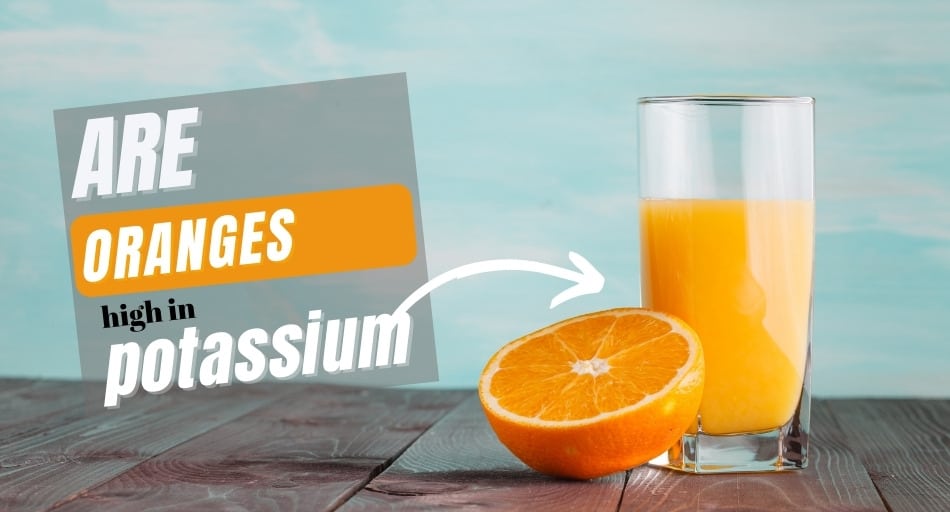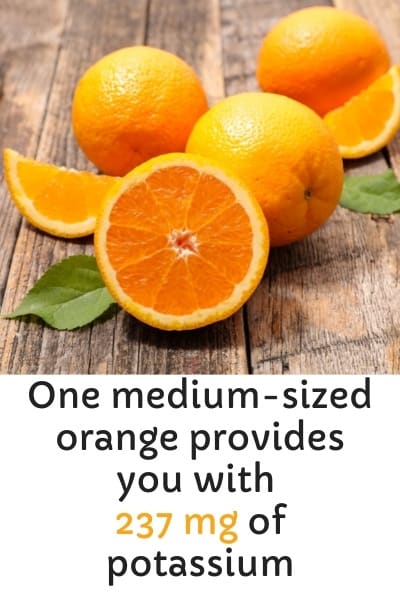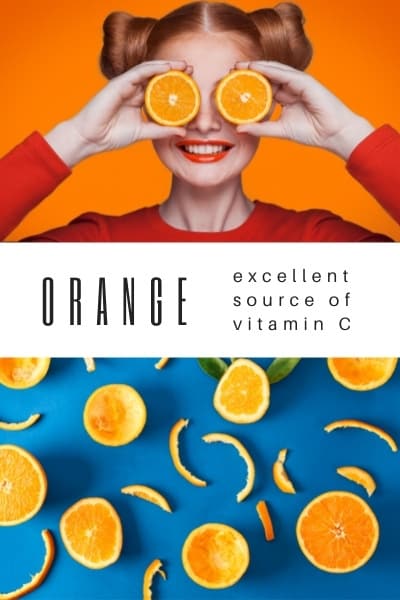Oranges are a delicious citrus fruit commonly eaten around the world. It has a sweet but slightly acidic taste, and many people eat it raw, juiced, and even as part of bigger dishes.

Oranges are also a wonderful source of many vitamins and minerals, including potassium.
But since those with kidney problems should be careful about their potassium intake, are oranges a good fruit choice for them? Are oranges high in potassium?
Table of Contents
Are oranges high in potassium?
Oranges are a great source of potassium, containing more than 200 mg of this mineral in a single fruit. This means that they should be limited on a low-potassium diet but can make for great fruit to up your intake of this essential mineral.
On top of that, oranges are loaded with powerful plant compounds and antioxidants that help prevent many serious health conditions. So, adding them to your diet, even if in small amounts, can be a great idea.
Can You Check Your Potassium Level at Home?
How much potassium is in oranges?
One medium-sized orange provides you with 237 mg of potassium. This makes them a high-potassium fruit that should be limited on a low-potassium, kidney-friendly diet.
However, for those looking to increase their intake of potassium, eating oranges can be a great way to do so.
It all depends on your dietary requirements and what you can and cannot eat. So always adhere to those to avoid any health issues.

Are oranges healthy?
Just like most fruits, a large portion of calories in oranges come from carbohydrates. While they contain sugar, they're also a great source of fiber, providing you with more than 3g of this important nutrient in a single medium-sized fruit.
Fiber improves digestion, helps soak up excess stomach acid, and feeds the 'good' gut bacteria in your stomach.
A diet rich in foods high in fiber can also help you feel full after eating and aid in weight loss.
Oranges are an excellent source of vitamin C. Also called ascorbic acid, this micronutrient is important for the growth, development, and repair of your body's tissues and cells.
It also works as an antioxidant, helps with iron absorption, and boosts your immune system, which makes it a very important vitamin for your health.
Vitamin C is water-soluble, so it's important to take it in daily.
Oranges also provide you with good amounts of antioxidants and beneficial plant compounds with anti-inflammatory properties.
These compounds help flush out free radicals from your body, preventing oxidative damage.
This lowers your risk of various health issues, including high blood pressure, diabetes, strokes, heart attacks, and even cancer.
Antioxidants also fight against inflammation, which can worsen many preexisting conditions and lead to chronic inflammation.

Due to the high content of vitamin C, eating oranges can help prevent anemia. This is a serious issue that occurs when your body doesn't take in enough iron, making you feel tired and weak.
Even though oranges don't contain too much iron, the ascorbic acid found in them helps with iron absorption, especially the kind found in fruits and veggies.
Iron is also important for various other bodily processes, so it's vital to eat foods that help with its absorption.
Can you take in too much potassium from oranges?
Oranges are high in potassium, but it's nearly impossible to take in too much of this mineral from eating this fruit. If you're healthy, your kidneys manage potassium and help flush out its excess amounts.
As a result, there's a very low chance of potassium toxicity, especially from dietary sources. In fact, most potassium overdoses happen when people take too many supplements.
On the other hand, if you suffer from kidney disease, your kidneys aren't able to remove excess amounts of potassium quickly enough.
When that happens, you can develop some health problems. So, eating too many high-potassium foods isn't advised for people with this condition.

Still, consuming small amounts of oranges (like half of the fruit) can be beneficial for your health – just make sure to do so in moderation.
Is orange juice high in potassium?
One cup of fresh orange juice contains 496 mg of potassium. This is a large amount, so drinking pure orange juice might not be suitable for people with kidney disease or those prone to kidney stones.
If you still want to include some orange juice in your diet, try drinking smaller amounts.
You can also dilute it with some water, which is beneficial not only for those on a low-potassium diet but everyone.
Some commercially available orange juices have added vitamin D and vitamin C, making them slightly more nutritious.
But unfortunately, they're still high in potassium and often contain artificial sweeteners, which are bad for your health.
They also contain fewer nutrients than fresh orange juices. So, if you have the option, make your own orange juice at home – it's a very easy process.
Is orange marmalade high in potassium?
Three tablespoons of orange marmalade contain 22.2 mg of potassium. While it might seem like a small amount, it's important to remember that marmalade and jams are very high in sugar, calories, and preservatives.
Because of that, it's important to consume them in small amounts and not very often, as they can lead to high blood sugar levels and weight gain.

To reduce the amount of sugar and preservatives, you can make a marmalade and jam yourself, using fresh oranges.
Are tangerines high in potassium?
Tangerines, also called mandarin oranges, are smaller and sweeter versions of oranges. They provide you with less potassium in a single fruit as they're smaller.
A single medium-sized tangerine contains 146 mg of potassium, so this fruit might be a great replacement for oranges on a particularly low-potassium diet.
Tangerines are widely available in stores worldwide, and they're very easy to add to any diet.
Conclusion
Oranges are a rather high-potassium fruit, making them a poor food choice for people following a kidney-friendly diet.
What's more, most orange-based foods are also high in potassium, so they might also need to be avoided.
For others, adding some oranges to your diet can help you load up not only on potassium but also other important nutrients and vitamins.
Don't know which foods are high in potassium? Read our article, 15 Best Food Sources of Potassium. We also have a guide to this important mineral: Potassium 101: All You Need To Know About Potassium.
